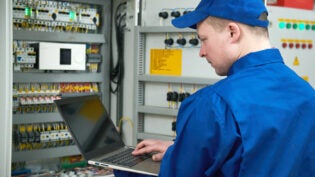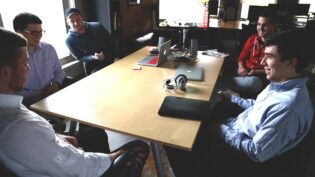
Running a startup is stressful. Running a startup while in the process of moving locations is even worse. Running a startup while moving your company and 27 others can be downright debilitating. Below, I’ve listed some things I learned while preparing to move my company, as well as all of the other companies in the cleantech incubator, Greentown Labs, where I’m a board member:
- Plan your budget. Now triple it. Unanticipated capital costs of moving will eat away your budget faster than Popeye at a spinach factory. Make sure you’re ready to handle the new HVAC system that you didn’t realize your new space needs, or the 32 other permits your realtor didn’t mention during the leasing process. At Greentown Labs, we launched a crowdfunding campaign to help us cover these unexpected costs. Whatever you do, make sure you have the funds to move and run your business at the same time.
- Get organized early. If you have problems locating your stapler, flash drive or even business checkbook now, consider what things will be like when half your gear is in boxes and the rest is already in transit to your new location. Schedule a high-level planning meeting to cover the business operations over the span of your move. Use this schedule to drill down the most basic things you’ll need. Will you be pitching to investors during your move? Make sure you don’t pack up the projector, dry erase markers, and the one good suit you have hanging in the back of the office. Create a “do not pack” zone and save these items for personal transport.
- Befriend the local pols. The sheer number of administrative requirements for relocating a business can be breathtaking. It helps to have a couple local government officials in your court. I’m not recommending any unseemly back-room deals, but the tacit backing of the mayor or local development authority will ensure your construction permits don’t get lost at the bottom of the stack. If you can communicate the value of your business to the local community (think jobs, tax base, etc.), good civic leaders will get behind you 100 percent. Furthermore, taking the time to understand what the local fire department or EHS inspector is looking for ahead of time can help you move through permitting with ease.
- Realtor or no realtor? A professional realtor may not be necessary if you know what you want, where you want it, and how much you’re willing to pay. However, too much ambiguity in what you are looking for will translate into a lot of time lost looking at a bunch of undesirable properties. Treat your realtor like a lawyer, make it clear what is needed and use them as a resource for navigating the real-estate landscape.
- Find a good lawyer. Though expensive, a good lawyer is indispensable. Real estate contracts, municipal codes, and other fine print are full of pitfalls. A good attorney will save you significant time and money in the long run. Chances are you’ve already worked with a lawyer to establish your business. Negotiate a reasonable price for their services by leveraging your previous relationship and communicating that your move does not put the kibosh on your business relationship. If cash flow is tight, a good relationship can often translate to deferred payments.
- Communicate to your employees (and customers). Don’t forget that you’re not doing this alone. Usually, employees on the front line of an organization are more acutely aware than you of specific logistical issues you may encounter. Also, synchronizing your team keeps everyone on the same page by managing expectations and coordinating efforts. A complicated problem may be quickly resolved by a creative or knowledgeable employee if you remember to keep the lines of communication open. Moving is stressful for everyone – empowering your people will pay off down the road.
This article was originally published by Startup Collective
Jason Ethier, founder and CEO of Dynamo Micropower, graduated with a BSE from Duke University in 2010. Previously he spent a summer as a cell leader in Lynn working at the GE manufacturing center for rotating parts, where he experienced firsthand how modern turbomachinery is manufactured. This experience, combined with his academic study of micro-combustion systems inspired him to create a new type of gas turbine with his co-founder Ivan Wang.
Published: February 25, 2014
1927 Views
1927 Views












